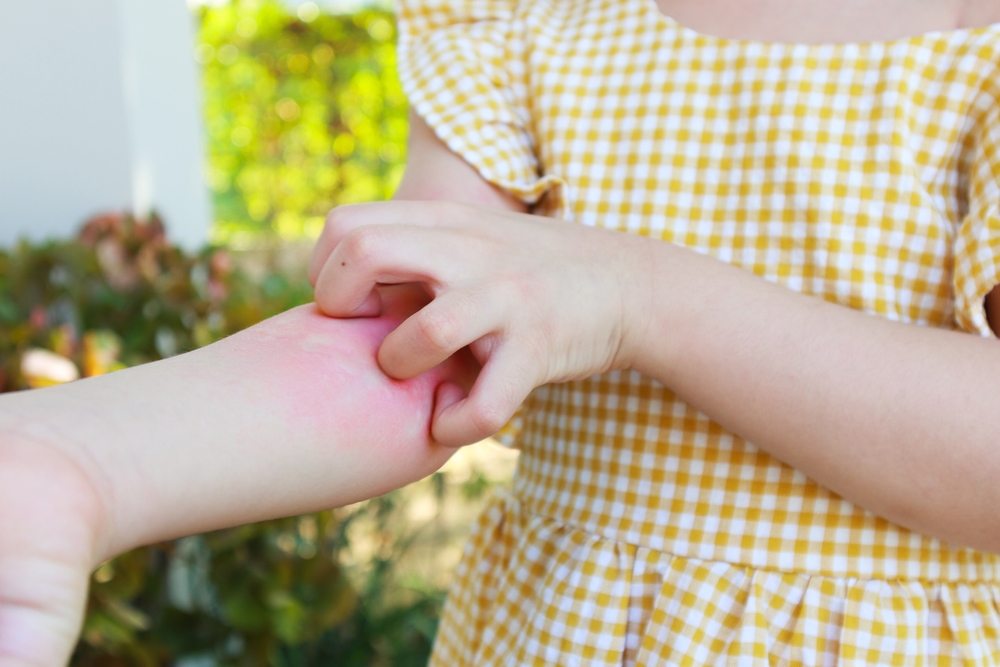- Phone: 2669 2883

Written by: YEUNG Ming Ha, Registered Chinese Medicine Practitioner
As we move into early autumn, in addition to starting to feel the cool breezes, we also
notice that many of our friends around us have started to "itch", and skin problems have
come knocking on the door again! Many people have rushed to seek medical attention,
constantly inquiring whether they have already contracted incurable eczema. Although
eczema itself has different categories, in terms of the pathogenesis, there are many
similarities with skin sensitivity. How exactly should we distinguish between skin
sensitivity and eczema? Is eczema really as terrible as it seems?
1. Causes of the Condition
Eczema is a common type of allergic dermatitis that is not contagious. In traditional
Chinese medicine, it is referred to as "damp sores", and it is a very common skin
condition. The internal factors of eczema include constitution, emotions, and organ
dysfunction, while the external factors include wind, dampness, and heat obstructing
the skin. "Where evil congregates, the vital energy must be deficient." When the body's
righteous qi is weakened, and the immune system function is reduced, wind, dampness,
and heat evils permeate the skin, leading to the development or worsening of eczema.
Skin sensitivity, also known as urticaria, is closely related to certain food sensitivities or
contact with substances. There are two common types of skin sensitivity. The first is an
allergic reaction triggered by exposure to external irritants such as metals, dust mites,
and chemicals. The second is caused by food sensitivity, which can lead to varying
degrees of skin sensitivity issues, including redness, dryness, and peeling, as well as
intense itching that may result in a "scratching" sensation.
2. Differences in the Appearance of the Affected Areas
In terms of the appearance of the skin rash, skin sensitivity generally presents with
redness, and even urticaria, which can worsen after scratching. Acute eczema can
manifest with red rashes, oozing, and even bleeding, while chronic eczema can lead to
thickening of the stratum corneum, an uneven surface, dryness, and even cracking.
Once this thickened stratum corneum is scratched off, it can not only cause bleeding,
but also result in oozing. Moreover, eczema can occur on any part of the body, such as
the ears, head, face, hands, navel, and legs, but in a symmetrical distribution. Patients
often experience intense itching, and when they scratch the affected areas, it can lead
to skin erosion, oozing of serous fluid, and even the formation of thick crusts. The
repeated episodes can make the skin surface rough and with raised lesions.

3. Treatments Converge Towards the Same Goal
Skin problems are primarily related to the three pathogenic factors of wind, dampness, and heat, especially dampness. Dampness can engender heat, leading to a damp-heat pattern. Over time, dampness can injure the spleen, while heat can damage the yin blood, resulting in a mixed pattern of deficiency and excess. This is because the patient's innate constitution (inherent physical factors) is intolerant, with a weakened spleen and stomach, leading to the generation of internal damp-heat. When combined with an external wind evil, the internal and external evils interact, causing the wind-damp-heat evil to permeate the skin. Patients generally have a congenitally weak spleen and stomach constitution. Excessive consumption of spicy, irritating foods like seafood, or a large intake of raw, cold foods in summer can lead to dampness and toxins burdening the body, further impairing the spleen's function and increasing the likelihood of developing skin sensitivity.
Therefore, dietary adjustment is crucial in the treatment of skin problems. Patients with skin diseases should avoid "aggravating foods" during the treatment period. These include seafood, beef, sweets, spicy foods, and alcohol - items that can trigger or worsen skin rashes. Patients should also avoid various skin irritants, such as scratching,
using strongly alkaline soaps, taking hot showers, and engaging in activities that cause excessive sweating, as these can provide relief for eczema.
Comments are closed